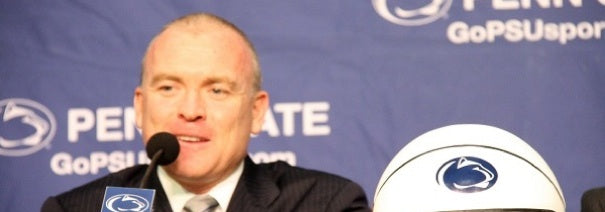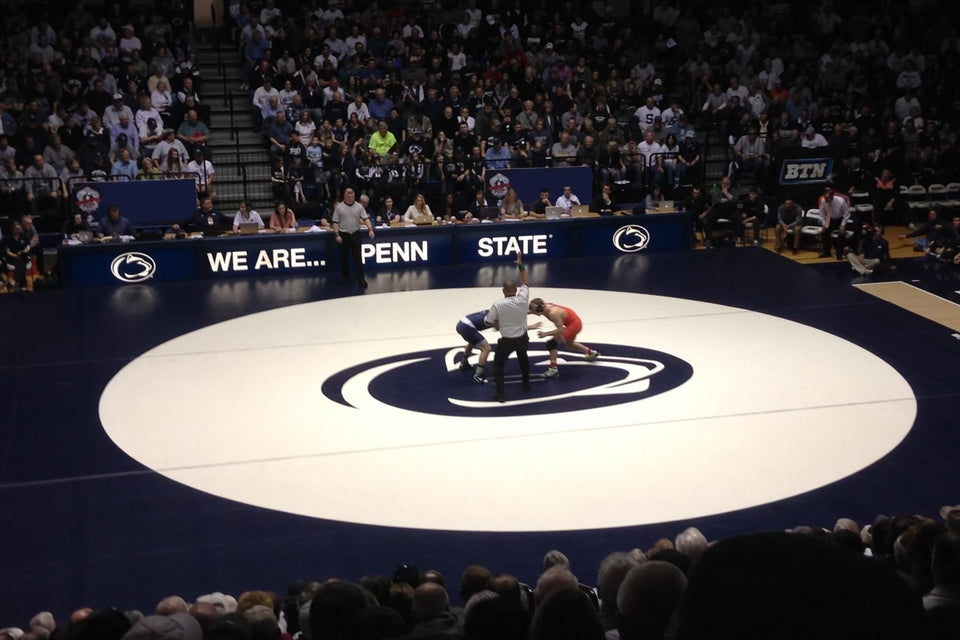
The Importance of Interviews Within Penn State Athletics
I believe that given the current publicity that intercollegiate athletics receive, it’s paramount that the mention of classroom success be evident in as many opportunities as possible. This will give prospective students, whether they be athletes or not, an impression that academics are not being paid lip-service and that expectations at Penn State are to be great at all things and not to be specialized into one particular area.
When commentators from network broadcasts interview athletes currently enrolled or former athletes, I feel the most beneficial answers to the University involve personal growth and academics. For years schools such as Penn State, Stanford, Notre Dame, and Duke have been praised continually for their student athletes’ commitment to academics as well as athletics. I believe this has given these schools an edge in getting the most driven of athletes. They may not necessarily be the best athletes from a genetic standpoint. More than likely, though, an athlete that is interested in bettering himself in all areas would need to have such an enormous mental drive to accomplish all the goals set before him that his success rate would be higher than those whose only desire is to be one thing.
These are the kinds of people that should be desired at Penn State. The ones with the drive; the ones that want to be great at everything.
I’ll give an example. During a post-game interview, the wrestling coach might say something like “Well, he’s been training really hard for this match all week.”
That quote isn’t bad, but it doesn’t speak nearly to his character as “Well, he’s been such a dedicated kid, he’s studied extremely hard for an engineering exam on Wednesday and still came to practice each day with the necessary energy and intensity to get better.”
That last quote means a little bit more to people. The acknowledgement of academics reverberates across the school, because while only a few may be involved with athletics, ALL of Penn State is involved with academics and can identify with taking a test while being involved with other activities. It now becomes easier for an audience to root for an athletic squad that puts such an emphasis on things outside of the game that they may be on scholarship to play. It also shows that the coach cares about the interests of their team outside of athletics and has genuine concern as to the character of an athlete.
Moreover, character issues should be brought to light. There is a growing impression that most athletes take advantage of their status and become womanizing drinkers. That they’re involved in illegal activities and often get engaged in violent on campus and off campus fights. This perception has a chance to be dispelled directly by the people involved.
Bringing to light stories of community service, of comradery with fellow students, and of family can help shed light on the positive attributes beyond the field. A player talking about mentoring a young person who has a disability, attending THON, or serving the community speaks of their character in ways that sports alone cannot.
Of course, there can be no bending of the truth, no half-truths, and no lying. For the words to mean anything they must be backed up by results. If a student-athlete fails a test, if they skip their classes, if they aren’t holding up their end as a student, then appropriate penalties should occur. These events should be mentioned, not to publicly embarrass an athlete, though this is a consequence, but rather to show that no one is above policy and that policy does not change based on a position within the Penn State community.
I would not highlight this during an interview but if a coach had to suspend a player due to academics or a violation of team rules and was subsequently asked about what happened, I believe an appropriate response would be to draw attention to the incredible rigors of being a student and the stresses that are put on players. He could mention that the player did not accomplish his goals, or made a mistake but that he will continue to work hard to accomplish his goals.
Over the course of time I believe this will lead Penn State to acquire the most driven and moral students that can accomplish multiple goals while in attendance at the University.


